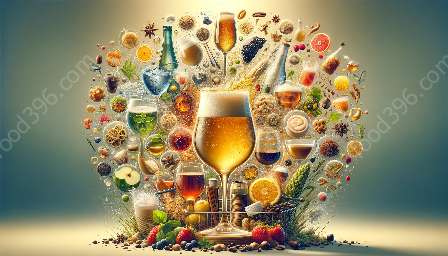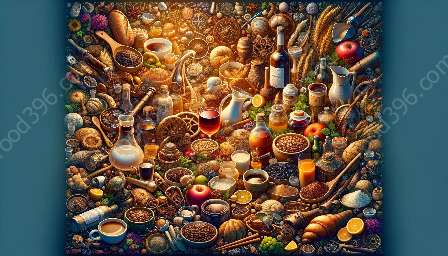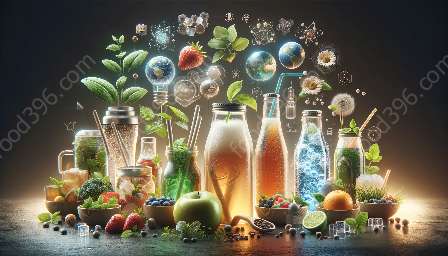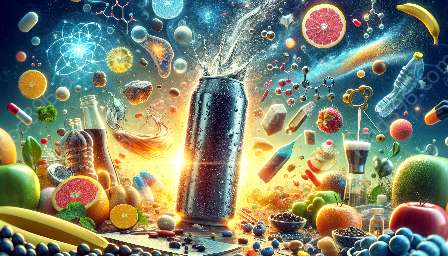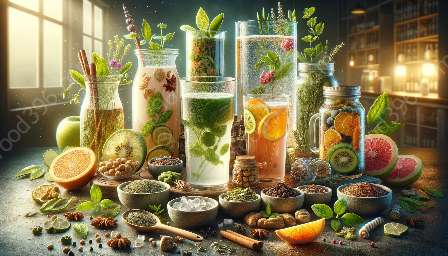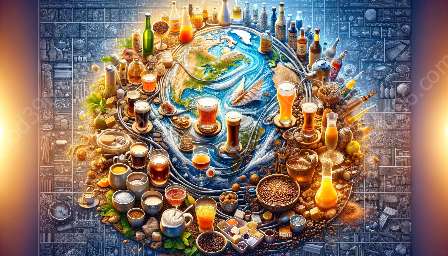Beverages have played a central role in human civilization, from ancient times to the present day. The story of beverages is a rich and diverse one, reflecting the evolution of societies and their cultural practices. The history of beverages is closely linked to beverage studies and the broader field of food and drink, offering insights into the development of culinary traditions and the social significance of drinking. In this comprehensive exploration of the history of beverages, we delve into the origins and evolution of a wide range of drinks, examining their cultural, social, and economic impact.
Ancient Beverages
The history of beverages dates back to the earliest human civilizations. In ancient Mesopotamia, the Sumerians brewed beer as early as 4000 BCE, using barley and other grains. Beer was a staple in the diet of the ancient Egyptians, who brewed a variety of beer-like beverages. In China, archaeological evidence suggests that fermented beverages, including rice wine, were produced as early as 7000 BCE. Wine production can be traced back to ancient civilizations in the Middle East, such as the Sumerians and the Phoenicians, who cultivated grapes and developed advanced techniques for winemaking.
The Age of Exploration and Global Trade
The age of exploration and global trade had a profound impact on the history of beverages. European explorers, such as Christopher Columbus and Ferdinand Magellan, introduced a wide range of beverages to the Old World, including coffee, tea, and chocolate. These exotic drinks quickly gained popularity and became central to European social rituals and daily life. The global trade in beverages also led to the establishment of colonial empires and the exploitation of natural resources, shaping the economic and political landscape of the modern world.
Industrialization and Commercialization
The industrial revolution and the rise of capitalism transformed the production and consumption of beverages. Advances in technology and transportation made it possible to mass-produce and distribute beverages on a global scale. The emergence of carbonated drinks, such as soda and tonic water, revolutionized the beverage industry, giving rise to iconic brands and new consumption habits. The commercialization of beverages also gave rise to advertising and marketing strategies, shaping consumer preferences and cultural trends.
The Rise of Craft Beverages
In recent decades, there has been a renewed interest in traditional and artisanal beverages. The craft beer movement, for example, has seen a proliferation of small-scale breweries and a resurgence of beer styles from bygone eras. Similarly, the craft cocktail renaissance has brought back classic mixed drinks and revived forgotten ingredients and techniques. The rise of craft beverages reflects a desire for authenticity and a rejection of mass-produced, homogenized products, as consumers seek unique and locally sourced drinks.
Beverages in Contemporary Society
Beverages continue to shape contemporary society in profound ways. The globalization of the beverage industry has led to the cross-pollination of drinking cultures, as traditional drinks from around the world find new audiences and adaptations. Health and wellness trends have also influenced the beverage landscape, leading to the rise of functional beverages, such as kombucha and green tea, which are perceived as beneficial to physical and mental well-being. Furthermore, the beverage industry faces increasing scrutiny over issues such as sustainability, ethical sourcing, and the impact of packaging on the environment, prompting discussions about responsible consumption and production.
The Future of Beverages
The history of beverages is a dynamic and ever-evolving narrative, constantly shaped by technological innovations, cultural shifts, and changing consumer preferences. As we look to the future, it is clear that the story of beverages will continue to unfold, presenting new opportunities and challenges for the beverage industry and beverage studies alike. Whether through the exploration of new ingredients, the development of innovative production methods, or the reimagining of traditional recipes, the history of beverages remains a source of inspiration and discovery, reminding us of the integral role that drinks play in our lives and societies.

